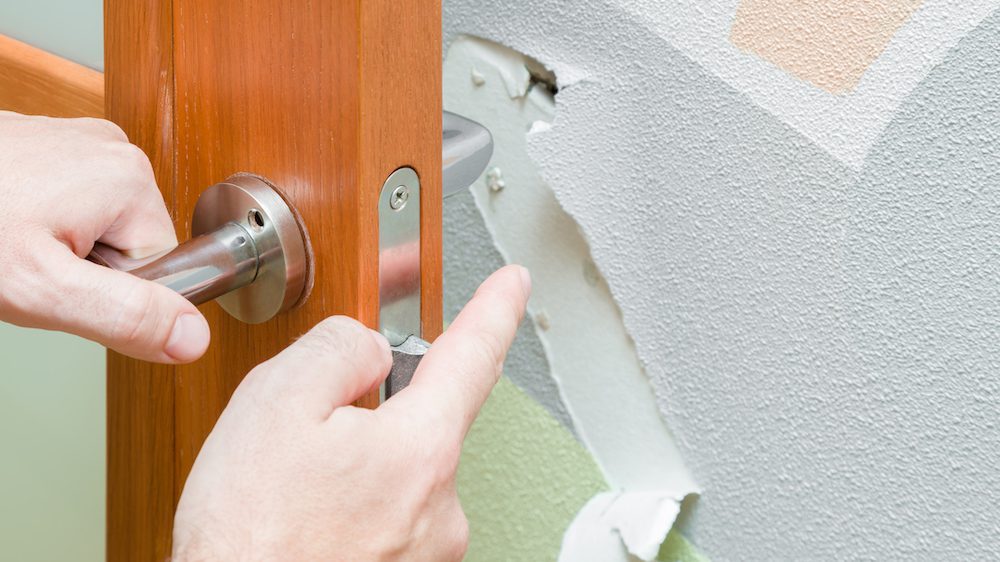What Can a Landlord Deduct From Your Deposit? A Primer for Current and Former Renters
Maybe you didn’t think twice when you put a big security deposit on that fancy apartment two summers ago. But now that you’re getting ready to move again, you might be wondering how much of that deposit you’ll actually get back.
Believe it or not, your deposit isn’t at the mercy of your landlord. Tenants have rights, and landlords have limitations on what they can deduct from your deposit.
In Florida, for example, “if the landlord fails to return the security deposit in a timely manner, or deducts for normal wear and tear, then the tenant can sue the landlord to get their deposit back and the landlord will have to pay the tenant’s attorney fee,” says Larry Tolchinsky, a real estate lawyer and partner at Sackrin & Tolchinsky in Hallandale Beach, FL.
But to avoid getting to that point, it’s important for tenants to understand the basics on deposits. In most states, the timely return of your deposit means there’s a deadline—such as 30 days—so be sure to leave a forwarding address.
When landlords deduct from your deposit, they will typically include an itemized statement explaining how the deposit was applied. In California, for example, if a landlord deducts any more than $126, they must provide receipts for their deductions.
Landlords can’t deduct from your deposit for any old reason; there has to be a legit circumstance. The rules may vary from city to city (or state to state), so read up on what your landlord can and can’t do in your area. But, in general, here are some things landlords can deduct from your deposit.
Nonpayment of rent
Unemployment as a result of the COVID-19 pandemic has hit many tenants hard, rendering them unable to pay rent. Some landlords and management companies have offered rent relief, but others have claimed that unpaid rent is unpaid rent. In this situation, landlords can collect unpaid rent—and late fees—from your deposit as necessary.
“Rent that is not paid is considered damages when a tenant vacates,” says Eric Drenckhahn, a real estate investor and property manager, who runs the blog NoNonsenseLandlord.com. “A tenant cannot use the damage deposit to pay their rent without the landlord’s approval, but a landlord can deduct it for nonpayment after a tenant has left.”
Unpaid utilities
Forgetting to pay your utility bill happens. But if you pay for things like trash and water through your property management company, be aware that your landlord could tap your security deposit to cover any bills you missed.
Tolchinsky says there is no black and white law on this, but it is possible. It all depends on the terms of your lease and local rules governing the jurisdiction that you reside in.
Abnormal cleaning costs
If you left the place trashed and filthy, expect your landlord to dig into your deposit. Landlords can deduct from your deposit for excessive dirtiness, beyond normal cleaning costs.
Drenckhahn says the place should be “broom clean,” or as clean as when you moved in.
“Dirt and grease left behind is not wear and tear,” says Drenckhahn. “Examples of excessive dirtiness includes removing stains from the carpet, replacing the carpet due to a cat using a closet for a litter box, or replacing door trim due to cat scratches.”
Doing a little cleaning before leaving isn’t a bad idea, but it doesn’t guarantee it’ll save your security deposit.
Tolchinksy says if a tenant hires a professional cleaner, rents a steam cleaner, or buys paint to paint the walls, he or she “should maintain all invoices and receipts” to provide proof to the landlord.
Damage to the property
Security deposit laws allow a landlord to deduct from a security deposit for any damage. This is different from normal wear and tear, such as faded paint or worn carpet that is naturally occurring and not due to the tenant. Examples of damage to the property include a broken bathroom vanity, cracked kitchen countertop, or broken doors.
Tolchinsky says it’s a good idea for a tenant to request a move-in and a move-out checklist and document by pictures and video the condition of the apartment.
Items left behind
Packing and moving everything you own is a huge undertaking. But regardless of how exhausted you are, don’t leave any items behind; it could be a costly mistake.
“Mattresses and box springs left behind are expensive to get rid of, and you will be charged accordingly,” says Drenckhahn. “It is not unusual to be charged $50 or more for each piece.”
If you do need to get rid of a bunch of large items, hire a junk hauling company, try to sell them online, or look into donating them to charity.
Breaking the lease
In some circumstances, breaking your lease is the only option. But breaking your lease early makes it less likely that you will reunite with your deposit.
A landlord can keep all, or part, of your deposit to cover costs if you break your lease early, per landlord-tenant state laws and what’s written in your lease contract. If you can, try to move when your lease is up.
“In my places, you are required to be out by 10 a.m. There is no late checkout, as I have tenants generally moving in the next day,” says Drenckhahn. “When you have the place clean, and even move out a few days early, it’s very easy to refund 100% of the damage deposit.”
The post What Can a Landlord Deduct From Your Deposit? A Primer for Current and Former Renters appeared first on Real Estate News & Insights | realtor.com®.
Homebuyers: For access to all listings and to find a homebuyers real estate agent that will represent only your interests call 800-935-6222 or click the button below to connect with MABA. At MABA we got you!

FIRST TIME HOMEBUYERS
First Time Home Buying in Massachusetts
 MABA Buyer Agents help first time home buyers reduce the stress and frustration normally associated with buying a home or condo – especially for first time home buyers.
MABA Buyer Agents help first time home buyers reduce the stress and frustration normally associated with buying a home or condo – especially for first time home buyers.
As a first time homebuyer in Massachusetts, you can turn to our non-profit organization to help you understand and navigate the complexities of the entire Massachusetts real estate transaction, from mortgage pre-approval until you are handed the keys to your new home or condominium. Each of our member buyer's brokers and agents works only for their buyer-clients and never for the seller of the home or condo that their buyers want to buy.
MABA Buyer Agents will take the time to learn about you and your real estate goals, help you understand your options, including first time home buyer programs, properties and/or condominium associations, estimate real property values and put together a negotiating strategy to help you increase the odds of getting your offer accepted in our competitive Massachusetts real estate market. After advocating to get your offer accepted, your MABA buyer's agent will be there for you at your home inspection and help you protect your deposit through the inspection, purchase & sale and financing contingency periods.
You can buy your first home or condo with confidence knowing that your MABA buyer agent is committed to saving you time and money and helping you make your best home buying decision.
Selecting the Right Homebuyer's agent
 Unlike most other real estate agents, a MABA home buyer's broker never represents both a buyer and seller in the same transaction so you never have to worry whether a MABA agent is really looking out for your best financial interests. A MABA buyer's agent acts as your advocate, real estate educator, advisor and negotiator, always loyal to you and dedicated to helping you find and buy the best home with the best terms at the price and showing you which homes to avoid along the way.
Unlike most other real estate agents, a MABA home buyer's broker never represents both a buyer and seller in the same transaction so you never have to worry whether a MABA agent is really looking out for your best financial interests. A MABA buyer's agent acts as your advocate, real estate educator, advisor and negotiator, always loyal to you and dedicated to helping you find and buy the best home with the best terms at the price and showing you which homes to avoid along the way.
Fewer than one percent of the agents and brokers in Massachusetts meet our high standards.
Whether you are ready to buy now or just beginning your home buying journey, click here to choose a Great Buyer's Agent to answer all of your home buying questions!
Tags used in this Real Estate Homebuyer in Massachusetts blog post:
#HomeBuyers #BuyersAgent #Boston #ma #RealEstate #HomeBuying #Broker #home #homesforsale
Article From: "Ana Durrani" Read full article
Get Started with MABA
For no extra cost, let a MABA buyer agent protect your interests



